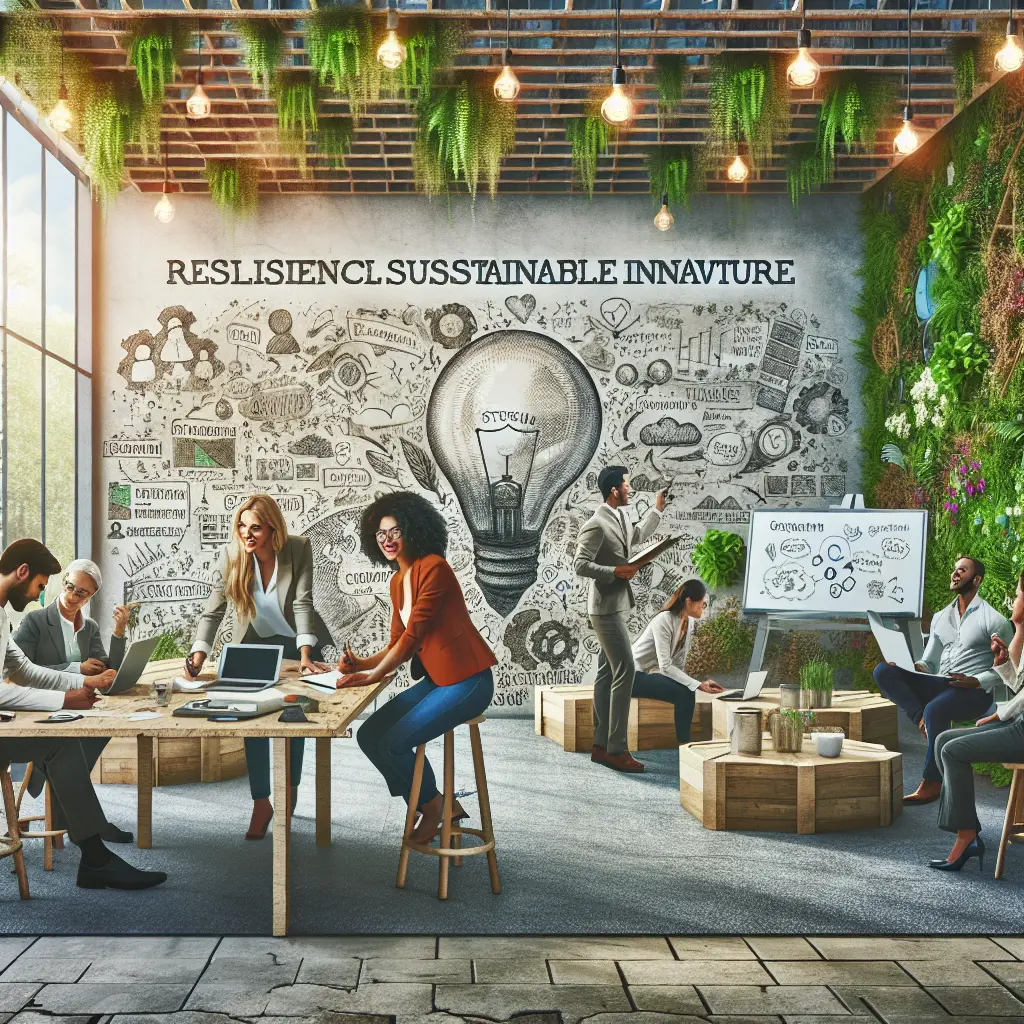
In today's rapidly evolving business landscape, integrating sustainable innovation has emerged as a critical component for developing a resilient startup culture. Startups that embed sustainability within their core operations not only navigate market volatility more effectively but also position themselves for long-term success. As we explore strategies and insights necessary for fostering such resilience, we'll draw from recent developments in artificial intelligence, employee engagement, political tech ecosystems, and innovative food production.
Embracing AI with Caution: Lessons from California
The recent support for California’s landmark AI Safety Bill highlights the importance of careful oversight in technology development. Renowned experts have emphasized that AI systems can pose “severe risks” if not managed responsibly (Time). For startups, this serves as a crucial reminder that integrating AI into their operations should be done with a focus on sustainable innovation and ethical considerations. By prioritizing AI safety, startups can develop resilient business models that mitigate risks while capitalizing on technological advancements.
Fueling Growth and Innovation: Insights from Series A Startups
A Series A startup's journey offers valuable lessons in perseverance, adaptability, and team engagement. These elements are fundamental in building a resilient startup culture. By fostering innovation through sustainable business practices, startups can achieve their dreams and make a positive societal impact (Forbes). This dual focus on growth and responsibility ensures that startups remain agile and competitive, ready to adapt to new challenges.
Political Tech Ecosystems: Shaping Campaign Culture
The emergence of the Startup Caucus aims to create a campaign tech ecosystem for Republicans, offering an alternative to Higher Ground Labs (Politico). This initiative underscores the importance of innovative startup strategies in reshaping traditional industries. Startups in any field can learn from this approach by embedding sustainable entrepreneurship into their core values, ensuring their innovations are impactful and enduring.
Just. Good. Design.: The Intersection of Aesthetics and Sustainability
Sustainable design is no longer a niche concept but a necessity for resilient startups. The philosophy of "Just. Good. Design." emphasizes simplicity, functionality, and equity (Design Milk). By adopting sustainable design principles, startups can enhance their products' appeal while promoting environmental responsibility. This balance is crucial for fostering innovation and building sustainable businesses that thrive over the long term.
Balancing Innovation with Employee Well-Being
The challenge of balancing innovation with employee well-being is a pressing concern for startups aiming to build a resilient culture (Harvard Business Review). Ensuring employees are engaged and supported is vital for sustainable growth strategies. Startups can achieve this by cultivating an inclusive environment where creativity is nurtured, and employee contributions are valued, leading to increased productivity and innovation.
Catalyzing Local Innovation: The Brazilian Example
Juicyhub's efforts to foster local innovation in Brazil through community-based approaches provide an inspiring model for startups worldwide (TechCrunch). By focusing on medium-sized cities, Juicyhub demonstrates how startups can contribute to regional development while building their own resilience. This approach highlights the symbiotic relationship between startup culture and innovation, where sustainable growth is achieved through localized impact.
Lessons in Disruption: Navigating Market Challenges
The rapid pace of disruption has challenged many large organizations, but startups can leverage this to their advantage (Harvard Business Review). By adopting resilient business models that prioritize agility and adaptability, startups can turn potential threats into opportunities. This requires a commitment to continuous innovation and strategic foresight, ensuring the startup remains relevant in a constantly changing environment.
Revolutionary Food Production: A Glimpse into the Future
In Helsinki, an innovative factory is producing food "out of thin air" using fermented bacteria (BBC). This groundbreaking approach exemplifies how sustainable innovation can redefine entire industries. Startups can draw inspiration from such revolutionary ideas to explore new avenues for growth while contributing to environmental sustainability.
The Rise of Innovation Labs
The strategic development of innovation labs offers startups a platform to experiment and innovate without significant financial risks (Forbes). By creating dedicated spaces for exploration, startups can drive sustainable entrepreneurship that supports long-term success. These labs enable companies to test new ideas and refine them before full-scale implementation, ensuring resilience against market uncertainties.
Transitioning from Startup Mentality to Strategic Vision
As Jeesoo Sohn highlights, transitioning from a startup mentality to a strategic vision is essential for sustainability (Inc.). This shift requires an understanding of organizational dynamics and strategic foresight. Startups must align their innovative strategies with their long-term goals to ensure continued relevance and success in their industry.
Conclusion
Building a resilient startup culture through sustainable innovation involves more than surviving market volatility; it's about thriving in it. By integrating ethical AI practices, focusing on employee well-being, embracing disruptive technologies, and prioritizing sustainable design principles, startups can position themselves for enduring success. These strategies will be crucial in creating resilient startups capable of adapting to an ever-evolving landscape.
As you reflect on these insights, consider how you might integrate sustainable innovation into your startup journey. Share your thoughts and experiences in the comments below, and let's continue this important conversation. For further exploration, visit reputable sources like Harvard Business Review and Forbes.
Stay inspired and innovate sustainably!
Author: Jenna Marlow